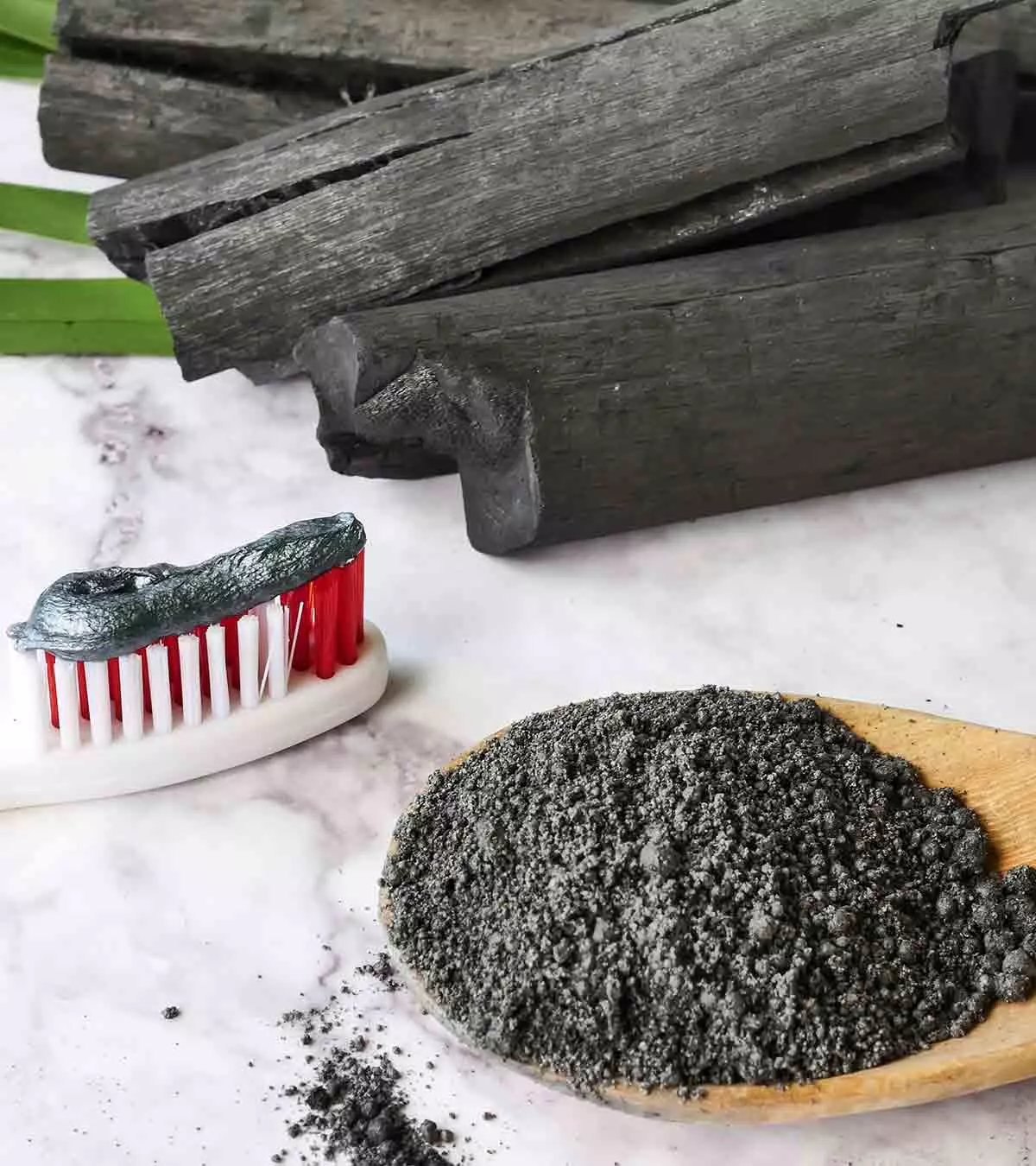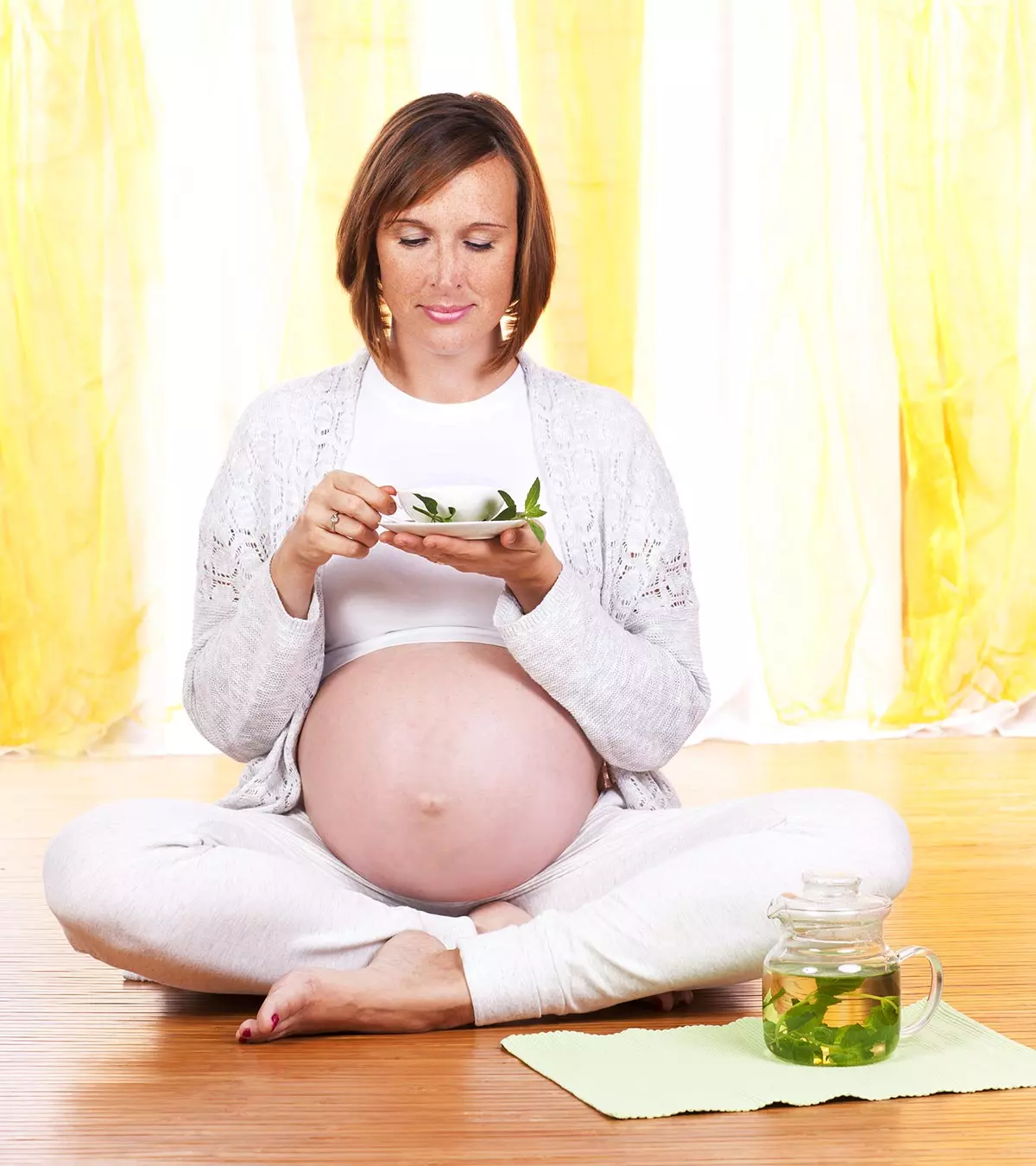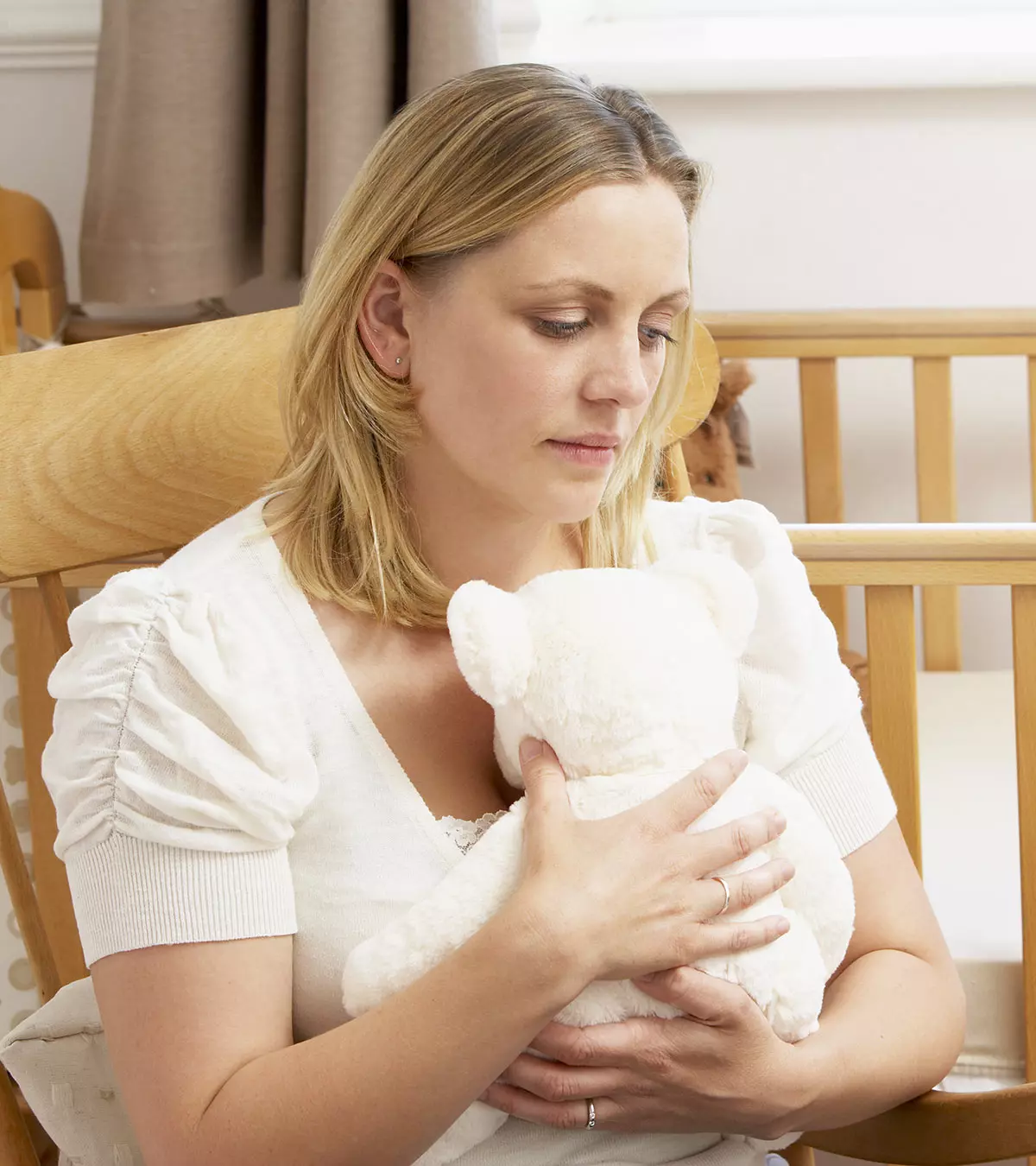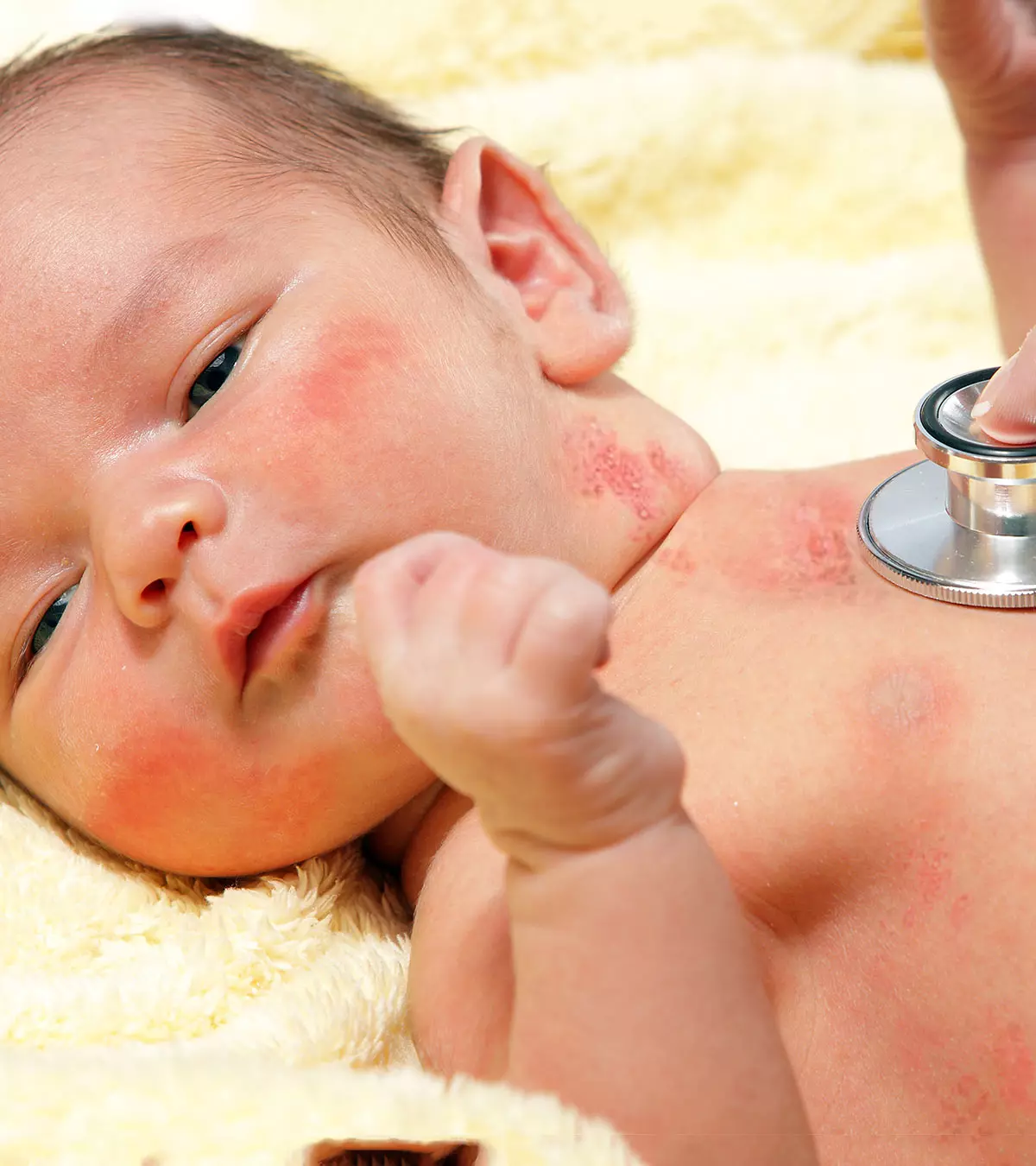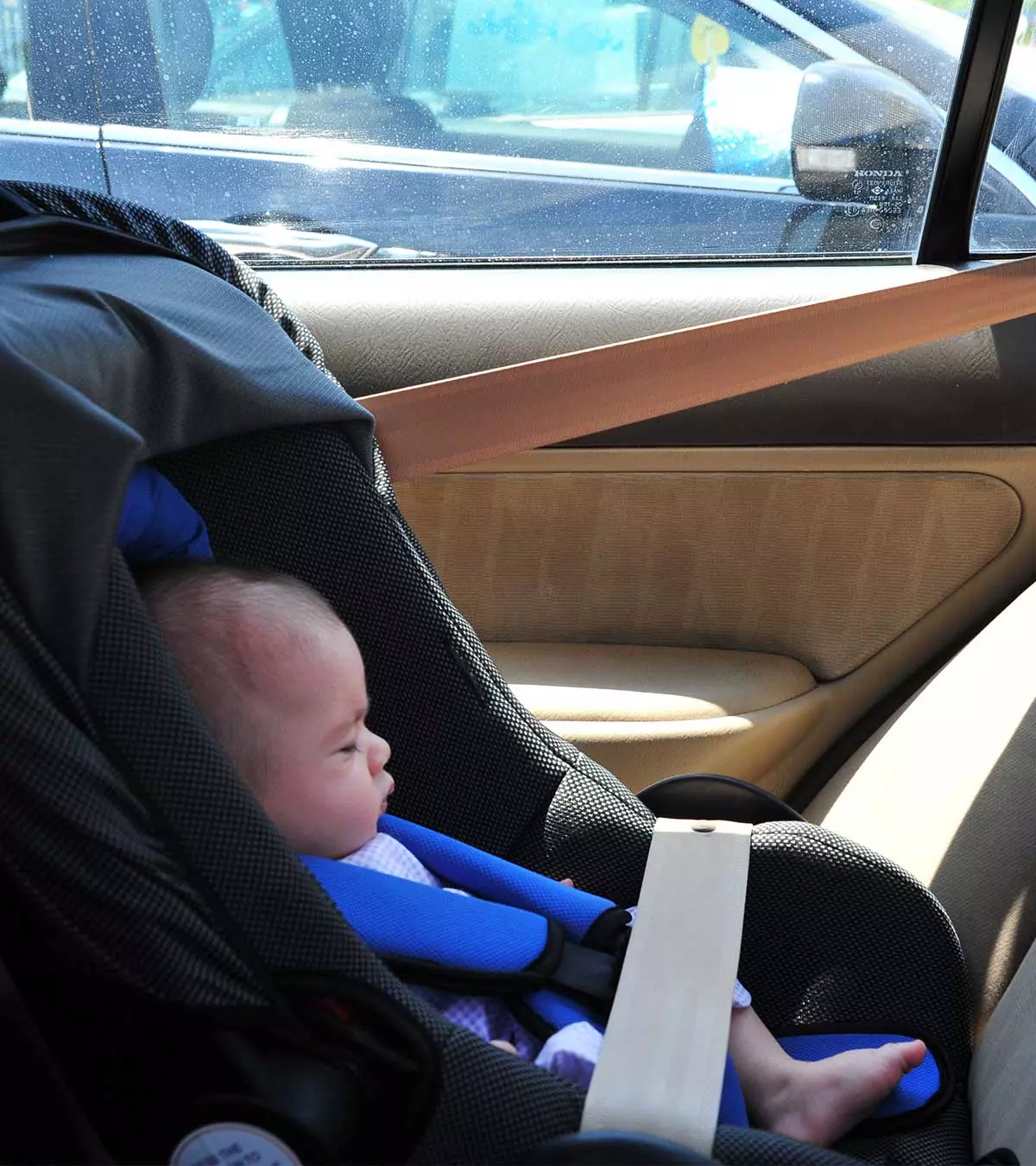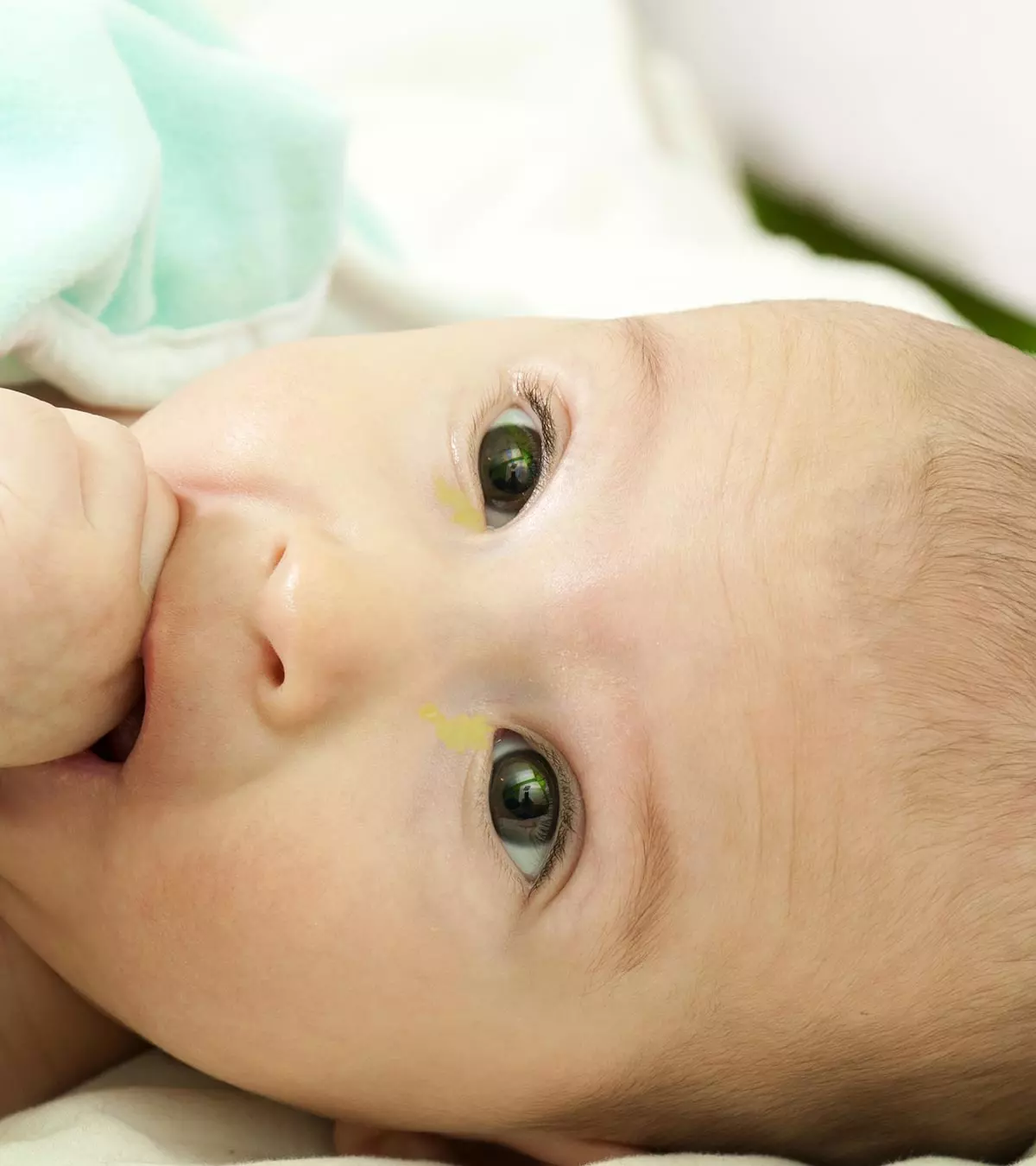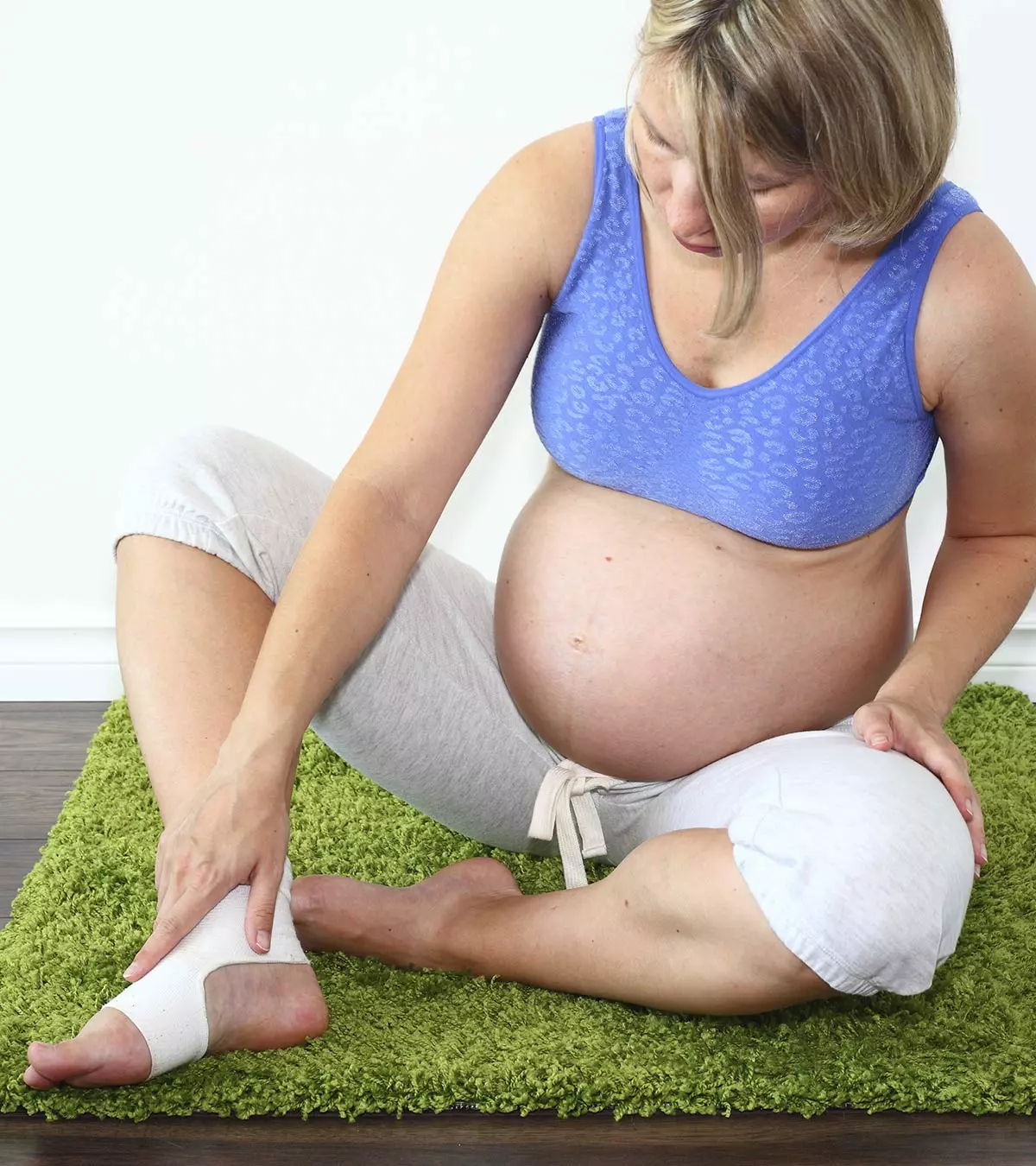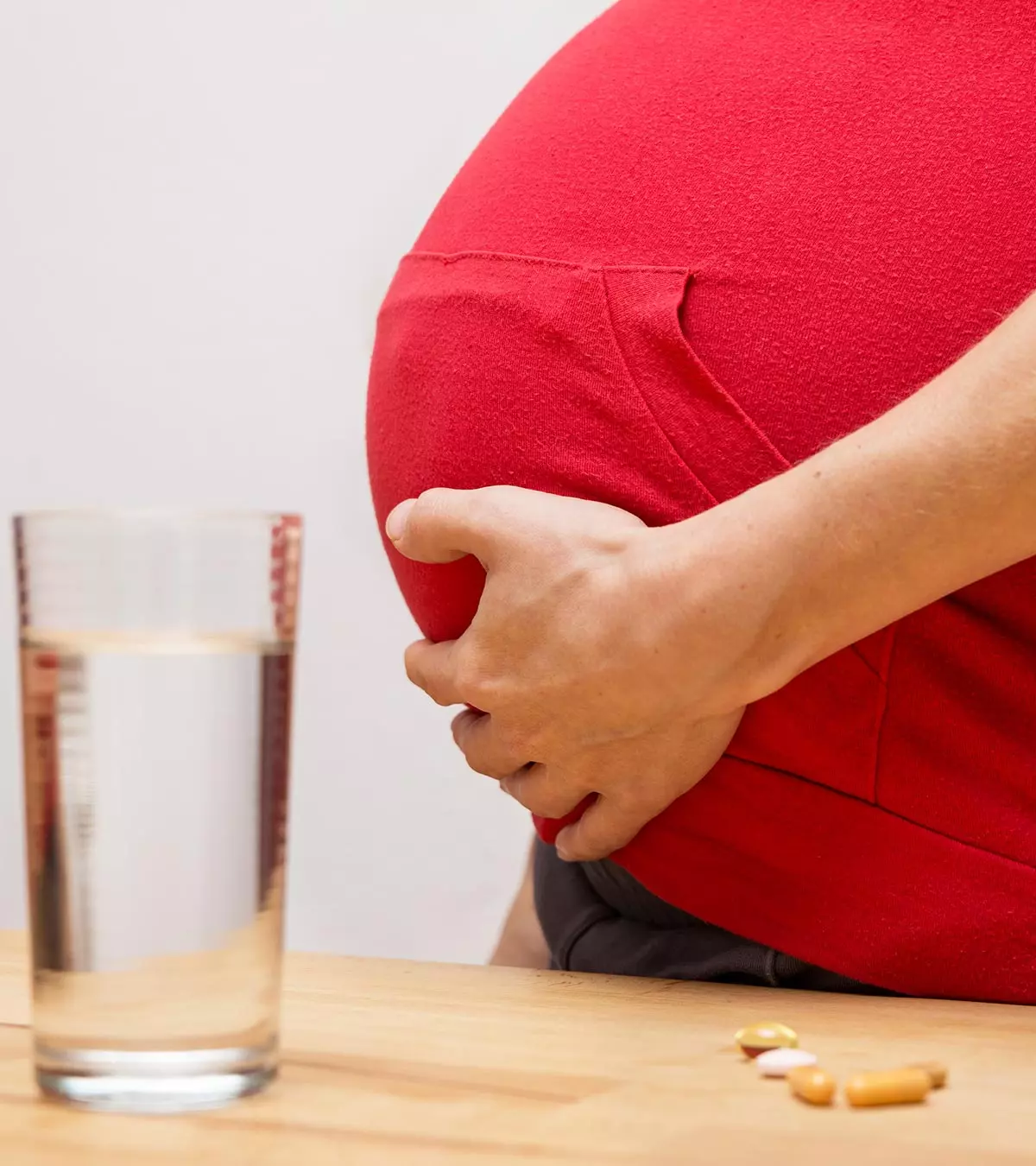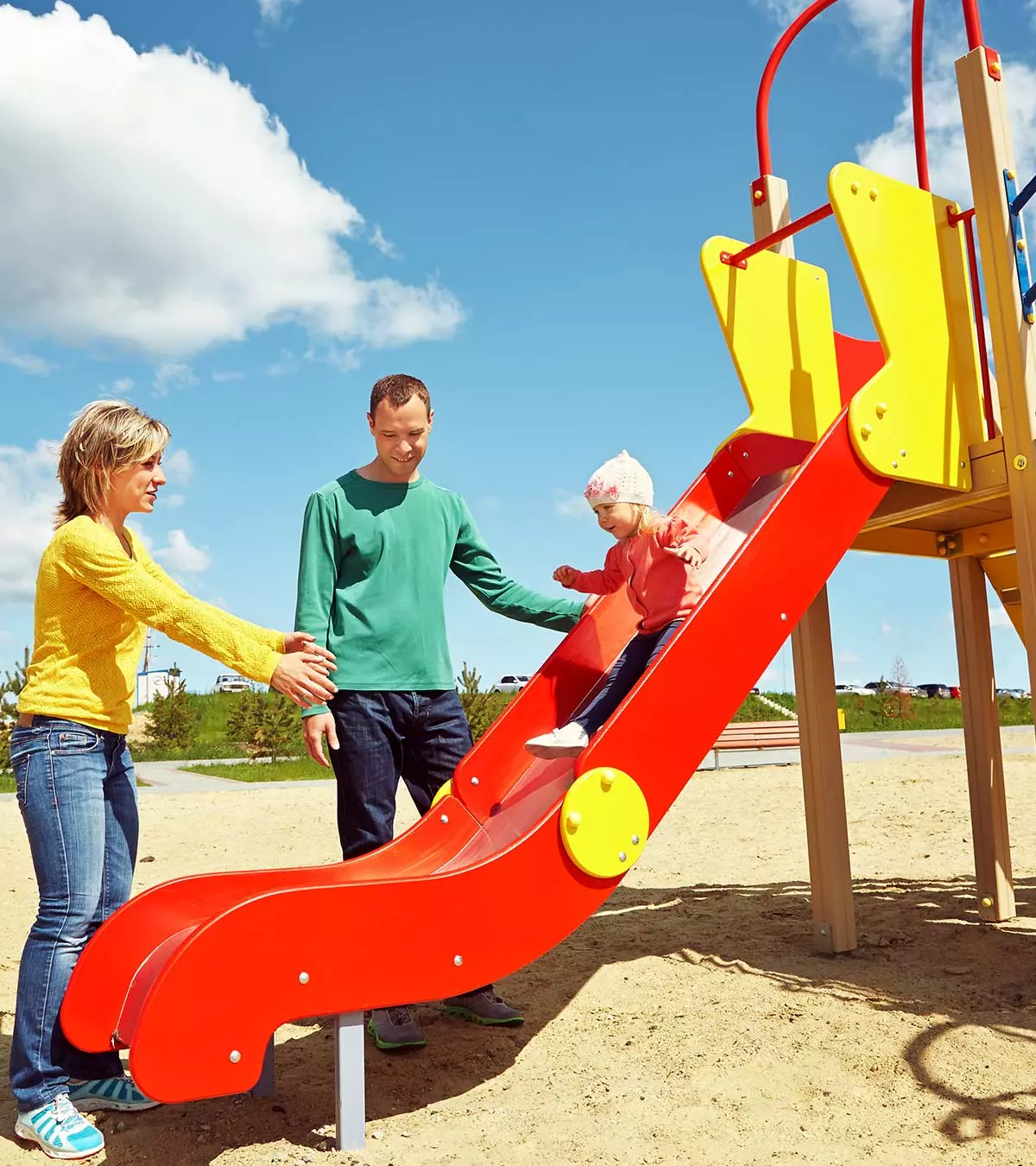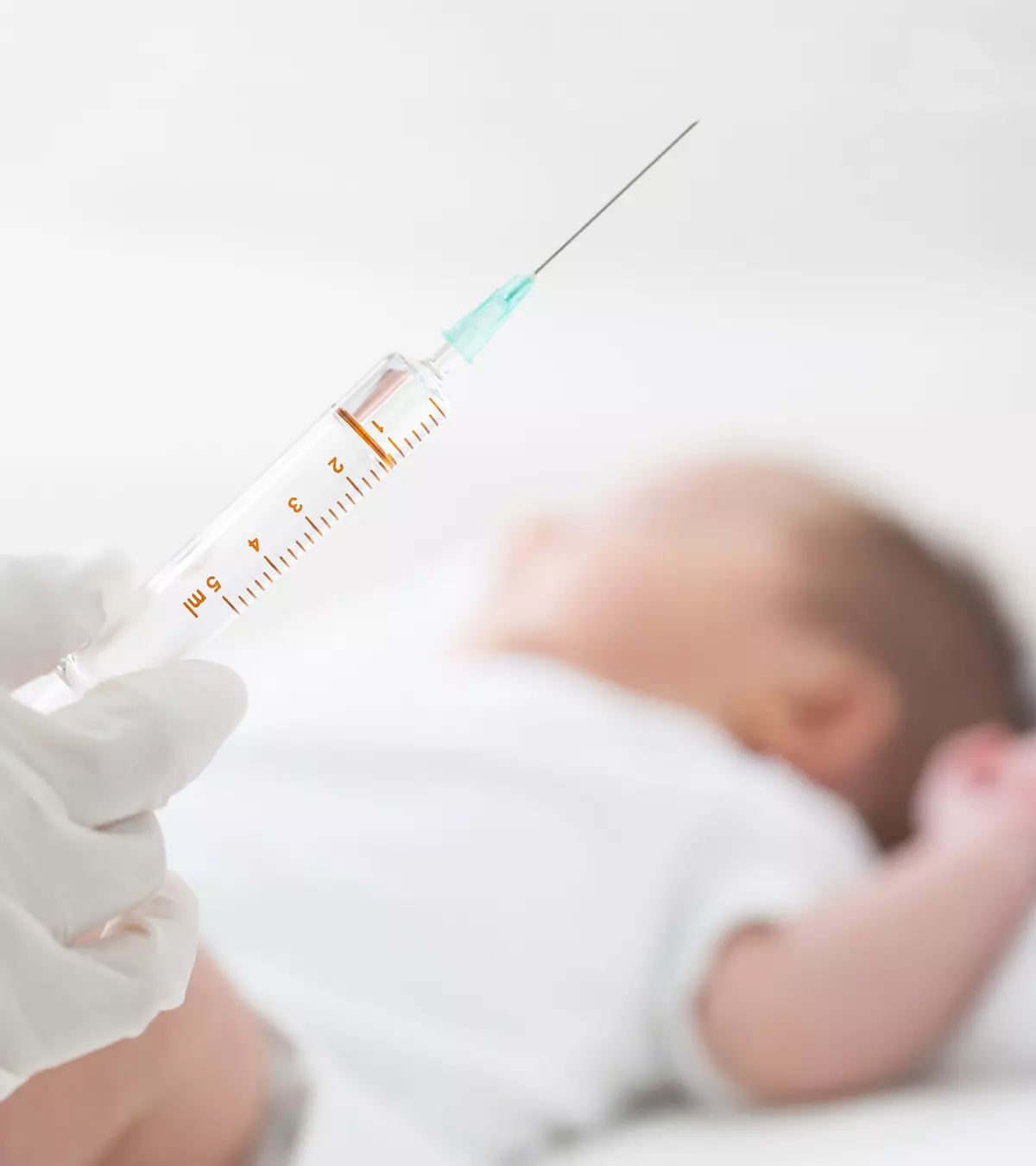
Vaccination is the best way to prevent several illnesses in babies. However, vaccination may have its share of side effects in some cases (1). Fever after vaccination in babies is one of the side effects, which often include pain and swelling at the injection site (2).
Fever after vaccination is often benign and manageable at home with simple interventions. Read this post to know the causes and management of fever after vaccination in infants.
Key Pointers
- Fever after vaccination is normal, and it occurs when the body identifies a vaccine as a foreign substance and triggers a systemic response.
- Mild fever lasting two to three days after vaccination doesn’t require medical attention.
- However, consulting a pediatrician is vital if the baby has a high-grade fever, vomiting/diarrhea, or a fever lasting more than three days.
- Dressing the baby in comfortable, breathable clothes, feeding them often, and using prescribed antipyretics are a few ways to manage fever after vaccination.
Is It Normal For Babies To Have A Fever After Vaccination?
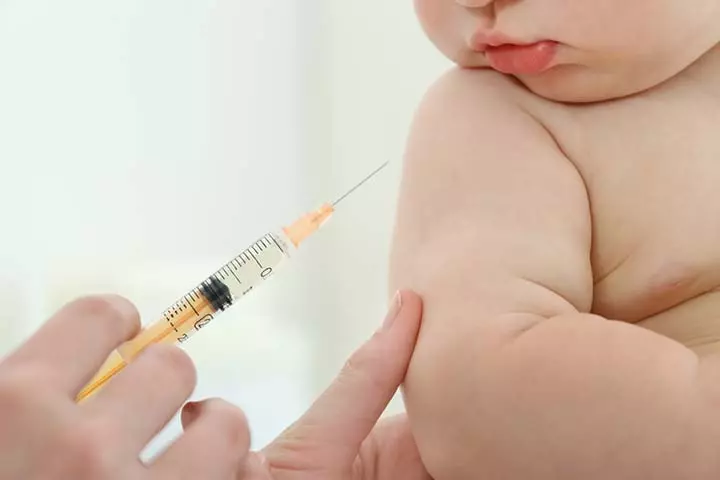
Yes. Like many other medicines, vaccinations can also cause side effects. Mild to moderate fever, pain, and/ or swelling at the site of injection, fussiness, and irritability are some of the side effects of vaccines (3). Though any vaccine can cause fever, a few vaccines like DPT are more common to produce febrile reactions (4).
Since the benefits of vaccines outweigh the risks, doctors across the world recommend immunization. Contact your baby’s pediatrician if you notice a high fever after vaccination in your baby.
 Experts say
Experts sayWhy Do Babies Get A Fever After Vaccinations?
Dr. Laura Purdy, a US-based board-certified family medicine physician, says, “The immune system’s response can result in an elevation of temperature. Fever can appear within the first few hours after vaccination. Certain vaccines, especially live vaccines, can even cause fever for many days, especially in younger children.”
The body’s immune system brings an inflammatory reaction in response to the foreign substance -vaccine (6).
It manifests as redness, swelling, or pain at the site of injection or other systemic responses like fever, body ache, or headache (7).
Having mild fever in response to a vaccine is normal. It means that the vaccine is working, and your body is producing antibodies to fight the infection. A mild fever usually develops within 24 hours of vaccine administration and may last for two to three days (8).
Medical attention is not required for the minor reactions that occur after vaccination.
After giving the vaccination, the healthcare provider will tell you about the side-effects it could possibly have on the baby, with fever being one of them.
When To See The Doctor?
It is possible for your baby to experience irritability within the first 48 hours after receiving vaccinations. However, you need to see the doctor in the following scenarios (8) (9).
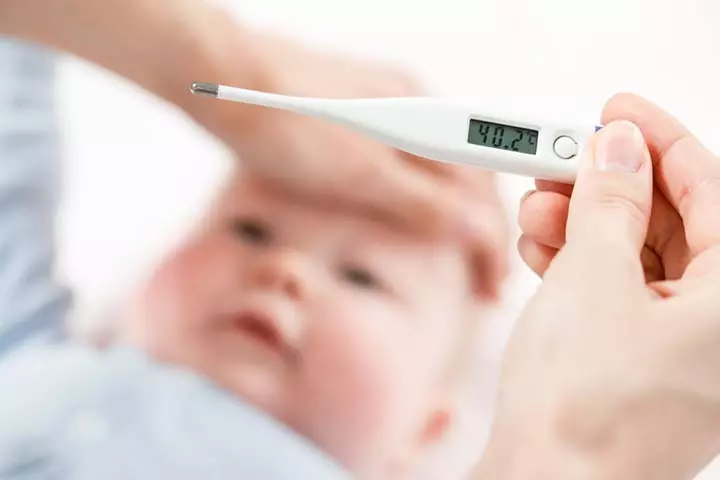
- High fever over 104°F (40°C)
- Fever lasts for more than three days and is accompanied by sweating or chills
- Fever returns after reducing for 24 hours
- Baby is experiencing congestion, cough, and drowsiness
- Nausea, vomiting or diarrhea
- Continuous crying and irritability for three hours or more
- Sudden and unusual screaming episodes accompanied by vomiting.
- Presence of blood in the baby’s bowel movements.
- Showing unusually lethargic and inactive behavior or unresponsive to normal stimuli.
- If the redness around the injection site grows larger than three inches in diameter
- Measles vaccine rash that lasts for more than four days (it starts six to 12 days after vaccine administration)
- If the baby appears sick and does not eat (appetite loss) or sleep well
 Quick Tip
Quick TipMost effects of vaccines, such as irritability, fussiness, redness, muscle aches, fatigue, swelling, pain, and fever, begin to subside after three days of vaccine administration. But with the DTaP vaccine, symptoms may persist for up to 7 days (10). Contact your pediatrician if they last longer.
Contact emergency care if your baby exhibits the following symptoms after vaccination (11) (12).
- Difficulty in breathing
- Hives
- Difficulty swallowing
- Swelling of the throat
- Fast heartbeats
- Hoarseness of voice
- Wheezing
- Convulsions or seizures
- Dizziness
- Vomiting
Severe reactions to vaccines are quite rare, but keep an eye on your baby. If you suspect anything unusual, contact the healthcare provider immediately.
How To Deal With The Fever After Vaccination?
If your baby develops a mild to moderate fever after vaccination, then the following steps might help you manage the distressed baby (13) (14).
- Do not cover the baby in layers of clothes or blankets. Dress in comfortable, loose, and breathable clothes.
- Ensure the room is cool and not overly warm.
- If you are breastfeeding the baby, then they might feed more often for one or two days after vaccination.

- If your baby is on a solid diet and refuses to eat, then you can consider a liquid diet. Give your baby formula, broth, and purees that are easy to eat and digest.
- Ask the doctor for a prescription of acetaminophen or ibuprofen medication. These medicines can help subdue fever and irritability. Never self medicate but only provide a dosage as recommended by your baby’s pediatrician.
- Consider applying cool compresses to your baby’s forehead to help lower fever and alleviate discomfort.
 Quick Tip
Quick TipA mother and blogger shares how she managed her baby’s fever after their first round of vaccinations at 8 weeks old. She says “At 8 weeks since this was the first dose of vaccinations our newborn had a fever up to 39 so we continued with paracetamol for 48 hours. After 48 hours passed the fever was gone. You will experience that your baby will be more fussy, will cry more and you will want to hold your baby more often than usual. Cuddles are very important since your baby will be very sensible. It is also important that they sleep more than usual, because they also heal faster while sleeping. In addition to fever your baby might also experience some redness, swelling or tenderness where they had the injection. As a home remedy treatment we put cold gauze on the legs just so we can try to reduce swelling around the skin when injections were given.
I personally continued with daily routine throughout the day. We gave bath to our baby at the usual times (5pm) but this time with mild water (I would personally avoid hot water since they are hot from the fever). After bath, I gave one last feed before settling my baby at around 6.30/7pm. The nights can be difficult since they will wake up more often than usual, but again important to feed them or simply hold them to help them back to sleep (i).”
Your child might be a little irritated and unwell after the vaccines. But the benefits of the vaccine significantly outweigh the risks. Therefore, vaccinate your baby as per the recommended baby vaccination schedule.
Frequently Asked Questions
1. Why are vaccines needed for babies, and how do they work?
The US Centers for Disease Control and Prevention (CDC) states that immunization is one of the best ways parents can protect their babies from 14 serious childhood diseases (15). Vaccines are made with dead or weakened microorganisms, called antigens (16). The body’s immune system identifies the antigens in the vaccine as foreign material and produces antibodies to fight the microorganisms (17). Later in life, if the baby is infected by the actual disease, the body recognizes the microorganisms and produces antibodies sooner to fight the infection away.
2. How long does fever last after vaccination?
Fever usually lasts for two to three days after the vaccination. It starts within 24 hours after the administration of the vaccine. This kind of mild fever is normal and harmless (8).
3. Do all babies get a fever after the vaccine?
It is not necessary that all babies develop a fever after vaccination. If your baby does not develop a fever, then it does not mean that the vaccine is not working. Each baby responds differently to the vaccine (18).
4. Does breast milk reduce fever in babies, after vaccination?
Research studies have shown that breastfed babies are at a lower risk of developing fevers due to vaccination. However, when fever in babies does occur, it’s important to remember that each child is different, and this may not hold true for all breastfed babies (19).
5. Does breastfeeding reduce a fever?
Breastfeeding can’t reduce fever. However, breast milk can give babies the nourishment and hydration needed during a fever.
6. Do babies sleep more after vaccines?
According to a study, compared with the 24 hours before immunization, most infants or babies slept more in the 24 hours after immunization. However, 37% of infants slept less after immunization (20). Therefore, sleepiness after immunization may vary from one baby to another.
7. Can I bathe the baby after vaccinations?
Babies can take a bath after vaccination. If the injection site feels swollen and warm to the touch, you can keep a wet cloth on it.
8. Can I give paracetamol to the baby on an empty stomach?
Adults can safely take paracetamol on an empty stomach (21). However, no directions exist for babies. Hence, it is best to speak to a pediatrician to ensure that your baby can take paracetamol on an empty stomach.
9. How long do babies feel unwell after vaccinations?
Fever after vaccination usually self-resolves within a day or two (8). On the other hand, local reactions, such as swelling, redness, or pain, may last for three to five days. The DTap vaccine may cause local reactions that last up to seven days. Painless vaccination for babies is an option you may consider to minimize discomfort during immunization.
10. How can I lower my child’s temperature naturally?
“There aren’t any reliable ways to lower the temperature naturally. Some people find that decreasing clothing or even cold baths can help. However, doing this may cause more discomfort to the child! Keeping your child hydrated may help, but for any young infant or toddler with fever, this may also be difficult,” Dr. Purdy opines.
11. Should I give my child medication before a vaccine visit to prevent fever after vaccination?
Dr. Purdy recommends, “You may give them the fever medication before vaccination, but it is unnecessary. Depending on the age of the child, Tylenol or Ibuprofen may be appropriate. I give my infants and toddlers premedication when they get vaccines. However, I don’t do this for older children because they can better withstand the discomfort during and shortly after the vaccination.”
According to the World Health Organization (WHO), around 20 million children worldwide still do not get vaccinated, increasing the risk of serious diseases, death, and disabilities (1). Vaccinations are important for babies. Mild side effects, such as fever, irritability, pain, and swelling, after vaccination in babies, are temporary and mostly subside within three days. Having a fever indicates that the vaccine is working in the body, so there is no need to worry, and simple precautions can manage it. However, if the baby experiences a high fever, vomiting, lethargy, or difficulty breathing, you should consult a doctor.
Infographic: Reactions With Certain Vaccines That Are Actually Normal
Certain vaccines produce particular reactions that may seem worrisome to parents. However, they are mostly harmless and resolve in some time. The infographic below helps you identify such reactions to vaccines. Illustration: Momjunction Design Team
Illustration: Fever After Vaccination In Babies: Is It Normal & Tips To Manage

Image: Dall·E/MomJunction Design Team
Vaccinations can be painful for babies and they may even develop a fever after a shot. In this video, learn what to expect after a vaccination shot and ways in which you can comfort your child.
Personal Experience: Source
MomJunction articles include first-hand experiences to provide you with better insights through real-life narratives. Here are the sources of personal accounts referenced in this article.
i. Baby Vaccinations.https://www.stbabyblog.com/post/baby-vaccinations
References:
- Vaccines and immunization.
https://www.who.int/health-topics/vaccines-and-immunization#tab=tab_1 - Xin Li et.al; (2018); The Influence of Vaccine on Febrile Seizure.
https://pmc.ncbi.nlm.nih.gov/articles/PMC5771385/#:~:text=The%20whole%2Dcell%20DTP%20vaccine,1%20per%202835%20%5B34%5D. - About Vaccines for your Children.
https://www.cdc.gov/vaccines-children/about/?CDC_AAref_Val=https://www.cdc.gov/vaccines-children/about/?CDC_AAref_Val=https://www.cdc.gov/vaccines/parents/FAQs.html - Ezzeldin Saleh et.al; (2017); Parental approach to the prevention and management of fever and pain following childhood immunizations: a survey study.
https://pmc.ncbi.nlm.nih.gov/articles/PMC5600183/ - COVID Vaccines for Children Age 6 Months Through 4 Years: FAQs for Families.
https://www.healthychildren.org/English/health-issues/conditions/COVID-19/Pages/covid-vaccines-for-kids-6-months-and-older-faqs-for-families.aspx - Linlin Chen et.al; (2017); Inflammatory responses and inflammation-associated diseases in organs.
https://pmc.ncbi.nlm.nih.gov/articles/PMC5805548/#:~:text=INTRODUCTION,vital%20to%20health%20%5B3%5D. - Caroline Hervé et.al; (2019); The how’s and what’s of vaccine reactogenicity.
https://www.nature.com/articles/s41541-019-0132-6.pdf?proof=trueMay - Immunization Reactions.
https://www.seattlechildrens.org/conditions/a-z/immunization-reactions/ - After vaccination.
https://ncirs.org.au/vaccine-safety/after-vaccination - Immunization Reaction.
https://www.stlouischildrens.org/health-resources/symptom-checker/immunization-reaction - Parent’s guide to childhood immunizations.
https://stacks.cdc.gov/view/cdc/35722 - Drug Allergy Program | Vaccine Reactions.
https://www.cincinnatichildrens.org/service/a/allergy-immunology/programs/drug-allergy/vaccine-reactions - After the Shots…
https://www.immunize.org/wp-content/uploads/catg.d/p4015.pdf - After Immunisation.
https://www.hse.ie/eng/health/immunisation/pubinfo/pcischedule/commonqs/afterimmunisation/ - About Vaccines for your Children.
https://www.cdc.gov/vaccines-children/about/?CDC_AAref_Val=https://www.cdc.gov/vaccines/parents/FAQs.html - How vaccines work.
https://immunizebc.ca/immunization-basics/how-vaccines-work - Antibody.
https://www.cancer.gov/publications/dictionaries/cancer-terms/def/antibody - What to expect after vaccinations.
https://assets.publishing.service.gov.uk/government/uploads/system/uploads/attachment_data/file/853210/PHE_what_to_expect_after_vaccination_English.pdf - Alfredo Pisacane et.al; (2010); Breastfeeding and Risk for Fever After Immunization.
https://www.researchgate.net/publication/44607947_Breastfeeding_and_Risk_for_Fever_After_Immunization - Linda Franck et.al; (2011); Infant Sleep After Immunization: Randomized Controlled Trial of Prophylactic Acetaminophen.
https://pmc.ncbi.nlm.nih.gov/articles/PMC3387894/ - Paracetamol for adults.
https://www.nhs.uk/medicines/paracetamol-for-adults/
Community Experiences
Join the conversation and become a part of our nurturing community! Share your stories, experiences, and insights to connect with fellow parents.
Read full bio of Dr. Shashidhar A
- Dr. Laura Purdy is a board-certified Family Medicine Physician with over a decade of experience. Previously a performing pianist, she later did her graduation in Psychology (Magna Cum Laude) from Ball State University and attended medical school at the Uniformed Services University of the Health Sciences. After graduating with a family medicine residency at Georgia’s Martin Army Hospital, she joined as a US Army physician.
 Dr. Laura Purdy is a board-certified Family Medicine Physician with over a decade of experience. Previously a performing pianist, she later did her graduation in Psychology (Magna Cum Laude) from Ball State University and attended medical school at the Uniformed Services University of the Health Sciences. After graduating with a family medicine residency at Georgia’s Martin Army Hospital, she joined as a US Army physician.
Dr. Laura Purdy is a board-certified Family Medicine Physician with over a decade of experience. Previously a performing pianist, she later did her graduation in Psychology (Magna Cum Laude) from Ball State University and attended medical school at the Uniformed Services University of the Health Sciences. After graduating with a family medicine residency at Georgia’s Martin Army Hospital, she joined as a US Army physician.
Read full bio of Dr. Ritika Shah
Read full bio of Rohit Garoo
Read full bio of Shinta Liz Sunny





